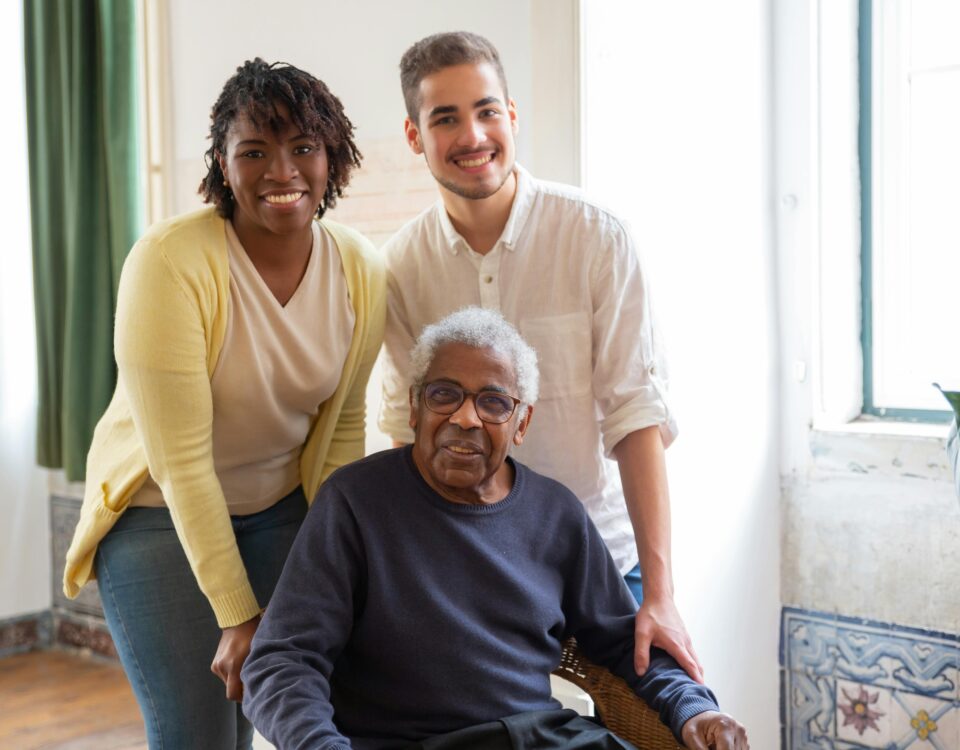You can’t always be there. But we can.
Why do Seniors Bruise Easily?

Early Signs of Alzheimer’s Disease
May 29, 2017
What is Aphasia?
June 9, 2017Why do Seniors Bruise Easily?
Mary stopped in at her mom’s house after work to check on her, just as she did every day. Her mom, Alice, was enjoying the splash of afternoon sun that fell across her kitchen table while she sipped from a cup of tea. Mary sat down across from Alice with a smile on her face, but her smile quickly faded when Alice rested her arm on the table and Mary noticed a large bruise on the back of her arm between her wrist and elbow. “Mom, what did you do to your arm? Did you fall?” Mary asked. Alice responded that she didn’t know what had happened. Mary worried that there might be something seriously wrong. Though Mary’s concern about the bruise was normal, it turns out that the bruising itself was pretty common, too.

Home Care Huntington Beach CA – Why do Seniors Bruise Easily?
What is a bruise?
Bruises occur when the tiny blood vessels that lie close to the surface of the skin, the capillaries, are broken. This usually happens when a person is injured, such as when they strike a hard surface. Blood seeps out of the capillaries and collects near the skin’s surface, causing what we commonly call a “black and blue” mark. Eventually, the body reabsorbs the blood and the bruise disappears.
What causes seniors to bruise easily?
Seniors bruise more easily for a couple of reasons. First, as we age, our skin gets thinner and the fatty tissue beneath it diminishes, which means there’s less protection for the blood vessels. In addition, some medications, such as blood thinners and aspirin, can cause the skin to bruise more easily. If you suspect your parent is bruising because of medications, talk to the doctor to see if there is an alternative.
However, your parent should be encouraged to continue taking the medication until the doctor says otherwise. Your parent’s home care provider can help ensure they continue using their medications by reminding them to follow their medication schedule.
How can bruising be prevented?
While it may be impossible to prevent all bruising, there are things that can be done to help your parent bruise less. Your parent’s home care provider can help by watching for things that may cause your parent to trip, such as loose rugs, telephone cords, or uneven surfaces. A home care provider can also help to move furniture pieces that are too close to doorways or in pathways that are frequently moved so that there is less risk of your parent banging against them. They can also make sure lighting is adequate, perhaps plugging in a nightlight in the hallway or bathroom so your parent can see at night.
When bruising does occur, a home care provider can assist your parent with treating minor injuries. Applying a cold compress to a bruise can help alleviate the pain. If the bruise is on the lower part of the leg, sitting with the leg elevated may also help. A few days after the bruise appears, using a warm compress will increase blood flow to the area and make the bruise disappear faster.
Sources: https://www.mayoclinic.org/healthy-lifestyle/healthy-aging/in-depth/easy-bruising/art-20045762
https://www.webmd.com/skin-problems-and-treatments/guide/bruises-article#1

